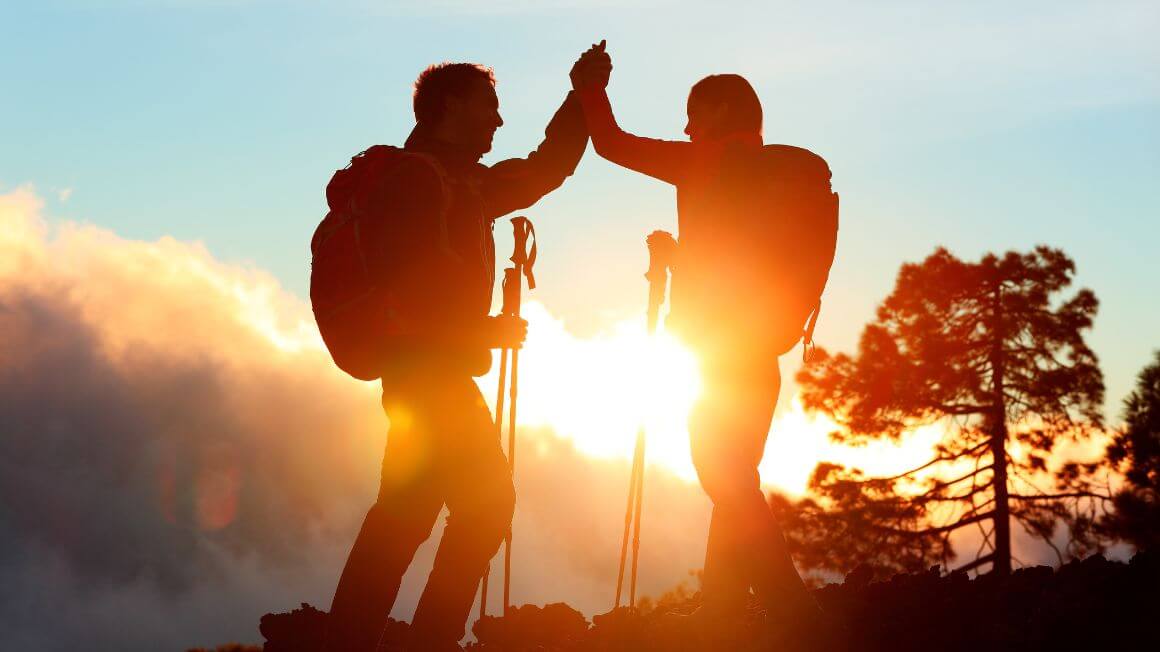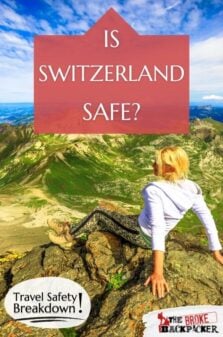Mountains, valleys, clocks, cheese, chocolate, banks… Switzerland is famous for a lot. But you’re most likely here for just how picturesque this European country is. Amazing road trips, unbelievably scenic train journeys and charming Alpine villages await.
But with all that beauty comes the threat of the natural world. Mountains aren’t always safe. And avalanches, adverse weather conditions, or simply injuring yourself when you’re out in the midst of all the nature is going to pose the biggest danger in Switzerland.
So it’s natural for you to ask, “Is Switzerland safe?” And we totally get it. That is the reason why we have created this bumper guide to staying safe in Switzerland. Even if it’s not petty theft or violence you have to worry about, traveling smart still pays off in nature.
Nevertheless, we are going to be covering a whole load of things in our epic insider’s guide. From whether or not Switzerland is safe for a solo female traveler, all the way to whether it’s safe to drive in Switzerland, and just about everything in between. We’re going IN.

Unlock Our GREATEST Travel Secrets!
Sign up for our newsletter and get the best travel tips delivered right to your inbox.
- How Safe is Switzerland? (Our take)
- Is Switzerland Safe to Visit Right Now?
- Safest Places in Switzerland
- 19 Top Safety Tips for Traveling to Switzerland
- Is Switzerland safe to travel alone?
- Is Switzerland safe for solo female travelers?
- More on Safety in Switzerland
- FAQ about Staying Safe in Switzerland
- Final thoughts on the safety of Switzerland
- Buy Us a Coffee!
How Safe is Switzerland? (Our take)
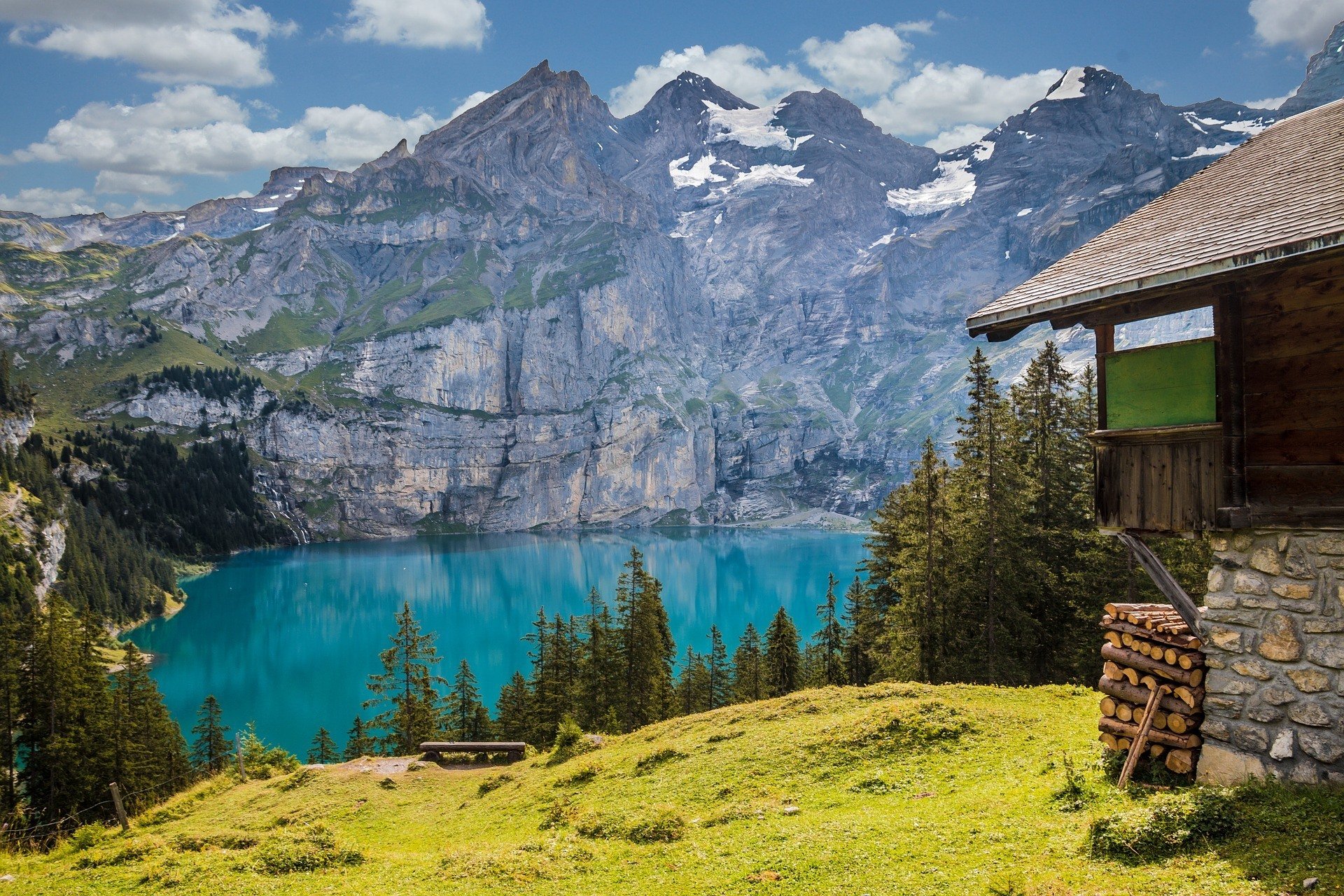
The Broke Backpacker is supported by you. Clicking through our links may earn us a small affiliate commission, and that's what allows us to keep producing free content 🙂 Learn more.
Switzerland is pretty much a snowy wonderland. But it’s more than snow: it’s got green, gleaming valleys and picturesque Alpine towns to explore. It’s a country of amazing train journeys, clean, crisp cities and a lot of organization – think of Swiss clocks!
And for the most part, Switzerland is safe. Like, really safe. It’s often thought of as the safest country in Europe.
Blissful Swiss villages and mountainside settlements may be crime-free, but these come with their own unique dangers.
You’ll have to be wary of landslides, avalanches, rockfalls, snowdrifts, as well as altitude sickness and generally injuring yourself doing outdoor activities.
And that said, no place is ever completely without crime. In Switzerland’s cities, you’ll have to be on the watch for pickpockets and scams – honestly more of a pain than a danger.
There is no such thing as a perfect safety guide, and this article is no different. The question of “Is Switzerland Safe?” will ALWAYS have a different answer depending on the parties involved. But this article is written for savvy travellers from the perspective of savvy travellers.
The information present in this safety guide was accurate at the time of writing, however, the world is a changeable place, now more than ever. Between the pandemic, ever-worsening cultural division, and a click-hungry media, it can be hard to maintain what is truth and what is sensationalism.
Here, you will find safety knowledge and advice for travelling Switzerland. It won’t be down to the wire cutting edge info on the most current events, but it is layered in the expertise of veteran travellers. If you use our guide, do your own research, and practise common sense, you will have a safe trip to Switzerland.
If you see any outdated information in this guide, we would really appreciate it if you could reach out in the comments below. We strive to provide the most relevant travel information on the web and always appreciate input from our readers (nicely, please!). Otherwise, thanks for your ear and stay safe!
It’s a wild world out there. But it’s pretty damn special too. 🙂
Is Switzerland Safe to Visit Right Now?
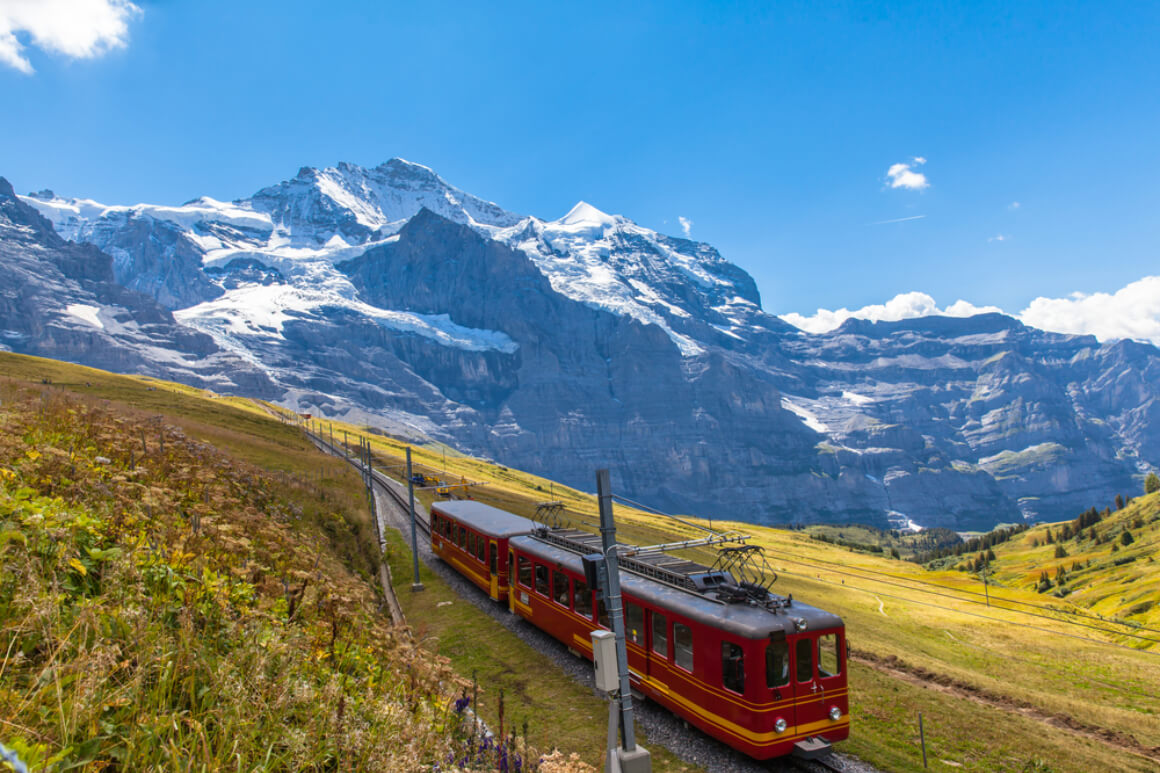
Of course Switzerland is safe to visit. Especially now.
There’s hardly any violent crime. The 2021 World Peace Index ranked Switzerland 7th on a list of 163 countries. That’s pretty safe to us.
There’s nothing pressing that will keep you from enjoying this awesome country.
If you’re heading to Switzerland for adventures in the Alps, there are definitely elements of your trip that will involve risk. Hitting the Swiss hiking trails means taking extra caution and preparation. However, if done correctly, there’s hardly anything to worry about.
We would also advise checking for avalanche and adverse weather warnings. These will definitely put a downer on the trip if you’re not aware of them. Head to the Swiss Federal Office of Meteorology site to check that out.
Hiking brings its own risks: altitude sickness, dehydration, injury and also you’ll have to be prepared for sudden changes in weather.
In recent years, thefts have been increasing. These target tourists in big cities and busy areas. But as long as you keep your valuables close and an eye on your stuff, pickpocketing thieves won’t stand a chance.
There have also been increasing reports of muggings in Zurich‘s Seebach district. Langstrasse is also well known as the city’s red-light district. These areas only get sketchy at night, but they’re incredibly easy to avoid.
It’s important to be aware that these things do happen, but avoiding these areas at night should keep you safe. The threat is still relatively low.
Want to save money on accommodation?
Enjoy 15% OFF on stays ALL around the world.
Safest Places in Switzerland
Since Switzerland is one of the safest countries worldwide, it doesn’t really matter where you’re gonna stay – chances are, you’ll be perfectly safe. To help you choose where you want to stay in Switzerland, we’ve listed our three favorite Swiss cities below.
Zurich
If you’re looking to experience quintessential Switzerland then stay in Zurich. There are loads of things to do in Zurich: winding city streets, charming old architecture, and the river Limmat make Zurich a dream come true for those wanting to get a real taste of all things Swiss.
It’s an absolutely stunning city with plenty of history to explore. However, not all is old in Zurich! The city boasts an amazing nightlife scene, really cool waterfront pubs and some pretty unique restaurants.
Even if you’re staying outside of the city center you can hop on a tram and head downtown. The city is perfectly connected by public transport. Most of the popular tourist sites are in Zurich’s old town which is filled with picturesque cobblestone streets and cute cafes.
Basel
Basel is one of the most underrated tourist destinations in Switzerland. It sits on the Rhine River in the northwest of Switzerland. It’s quite close to the borders of both France and Germany, which means that if you’re doing a euro-trip, Basel is a great city to stay in to launch your Switzerland leg.
What makes Basel so unique is that it has a bevy of art galleries, opera houses, theatres and performing art venues, as well as museums. While you won’t be close to the Swiss Alps, the vibrant arts and culture scene really make Basel a worthy city to visit.
Interlaken
Interlaken is a picturesque resort town in central Switzerland. It’s actually built on a small stretch of the valley between two lakes; Lake Thun and Lake Brienz hence the name…. Being completely encased in thick forests, meadows, and lakes makes any trip to Interlaken positively idyllic. Plus, there are plentiful glaciers and you know what that means… If you want to do some serious skiing or hiking in Switzerland, this is the place to be!
If you have the energy, hike up to Harder Kulm (the harder they Kulm, the harder they fall), also called House Mountain – the views from up there are unparalleled! If you’re feeling sore from your hike, catch a boat tour and enjoy cruising along the water. If the idea of a boat ride bores you, then go ahead and head on over to Hohenmatte to go paragliding!
Places to avoid in Switzerland
Again, as we’ve mentioned above, there aren’t any dangerous areas in Switzerland.
The biggest safety concern is getting lost on the hiking trail or injuring yourself on a trek, but the city life is mostly safe.
Of course, walking around at night is always a bit sketchier, so we’d recommend either opting for a taxi to get around or stick with a group of friends when you’re out after dark. You’re unlikely to get into trouble, but this just adds another level of safety to your trip.
Another completely underestimated safety issue is nature. Especially during the winter months, ski slopes can get tricky, so always be sure to stay within the marked areas. Also, make sure your car is equipped with winter tires. Getting up and down the snowy mountains can become really dangerous if you’re not properly prepared.
Switzerland Travel Insurance
ALWAYS sort out your backpacker insurance before your trip. There’s plenty to choose from in that department, but a good place to start is Safety Wing.
They offer month-to-month payments, no lock-in contracts, and require absolutely no itineraries: that’s the exact kind of insurance long-term travellers and digital nomads need.
SafetyWing is cheap, easy, and admin-free: just sign up lickety-split so you can get back to it!
Click the button below to learn more about SafetyWing’s setup or read our insider review for the full tasty scoop.
19 Top Safety Tips for Traveling to Switzerland
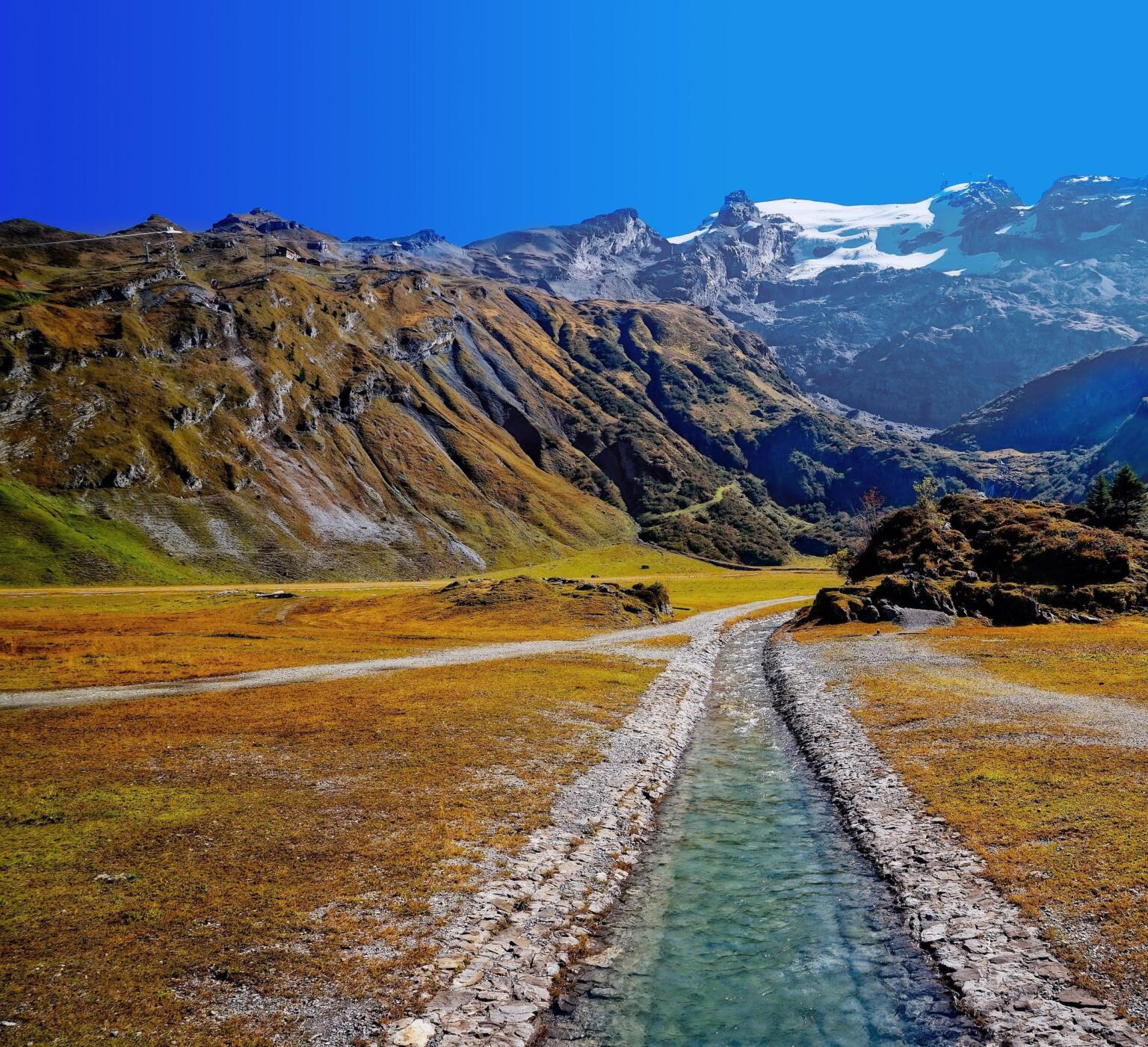
Switzerland is expensive but that comes with certain benefits as well. Most visits to Switzerland are going to completely trouble-free. But there is still crime here, and Mother Nature can definitely get the better of you.
So, on top of general travel safety advice, here are some of our top tips to help you stay as safe as possible in Switzerland.
- Keep belongings close to (or in front of) you – pickpockets do exist, so don’t advertise yourself as an easy target. You can keep money physically on you with a security belt.
- Don’t leave your belongings unattended – around train and bus stations, and even museums. They’ll be gone.
- Be vigilant in big crowds – the risk of theft is higher when you’re in a crowd. You won’t even know it’s happened.
- Only take out what you need for the day – and leave valuables (and passport) safely in your hotel room. No use losing it all.
- Don’t hang your bag on the back of your chair – in restaurants. This goes double for tourist areas. Good pickings for thieves.
- Know a scam when you see one – it’s not just in person, but via email when you’re there. Refunding tax and stuff. They’re not real.
- Check weather conditions – especially in the mountains. Weather can change quickly and all sorts of things can happen in just one day.
- Stick to marked paths – when you’re out hiking. It may be a cool, off the beaten track route, but paths are marked for a reason!
- Don’t overestimate yourself – know your capabilities, whatever you’re doing. This isn’t the place to push yourself.
- Take appropriate equipment – a no-brainer, but you’ll need to have the right gear. Warm clothes and wet weather stuff, depending on what you plan to do.
- Make sure your insurance covers you – skiing, mountaineering, biking, whatever – if you get injured, you’ll need to air-lifted. This is very, very costly. So make sure you’re covered for all the outdoors stuff. Often this is an adventure add-on to your basic package.
- Off-piste skiing is SUPER RISKY – be aware of all the dangers if you’re going to attempt this.
- Particularly during heavy snow – because that comes with an increased risk of avalanches.
- Be careful in high altitudes – headaches, dizziness, difficulty breathing, nosebleeds. These are signs of altitude sickness. This can be seriously dangerous!
- Don’t ascend too quickly – it takes time for your body to adjust to higher altitudes.
- Don’t go out hiking by yourself – super risky. Go in a pair or more.
- Protect yourself from the sun – UVs are brutal in snowy places. Sunglasses and high SPF sunscreen are necessary.
- Ask your accommodation for avalanche information in the local area – and avalanche hotspots. A local tourist office will also have information on this.
- Get yourself an avalanche beeper – these are often what SAVE people trapped in the snow. Having one is a good idea.
Nature is going to be the most dangerous thing in this mountainous country. Exposure, avalanches, altitude sickness, injury; There’s a lot that can go wrong when you’re in the great outdoors. So be careful!
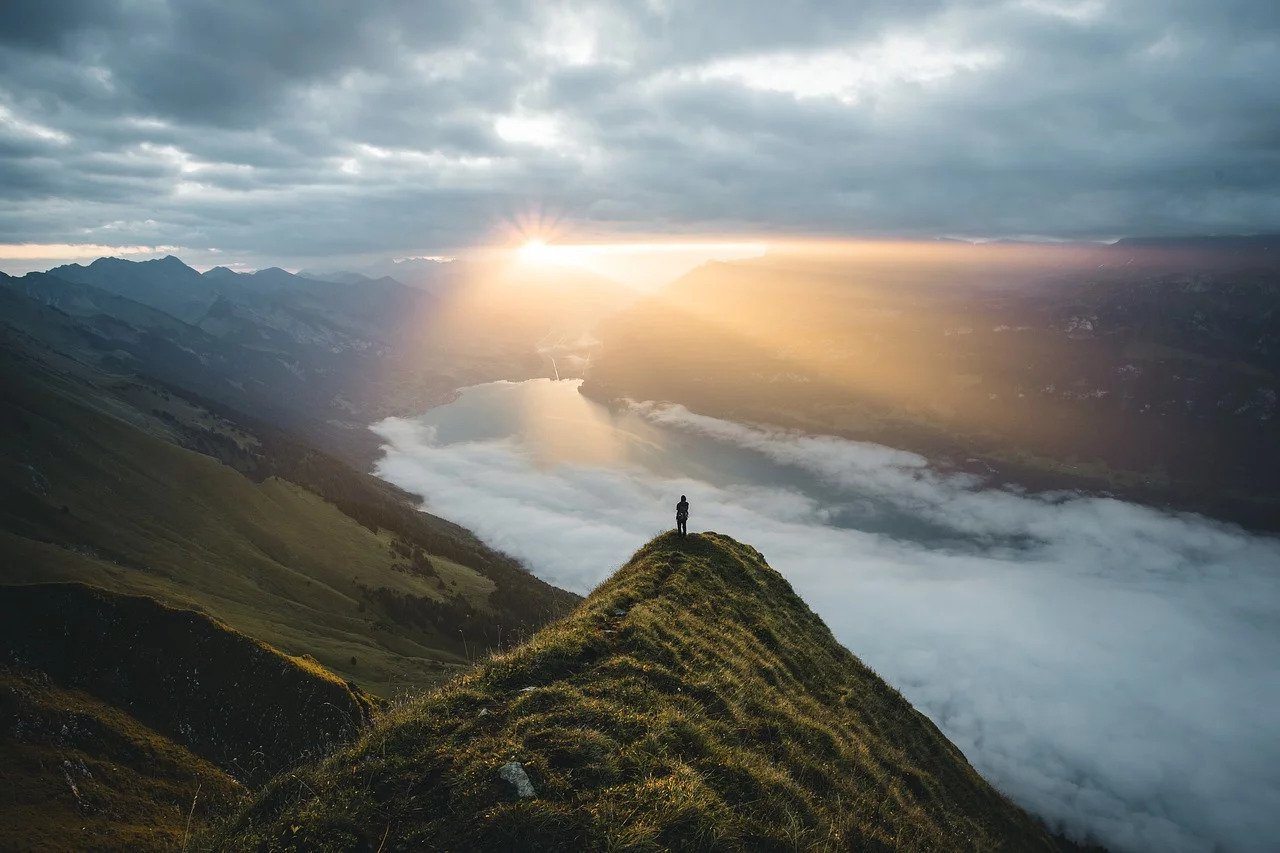
Switzerland is safe to travel alone. In fact, it’s really safe. There may be pickpockets in tourist areas, but this place ranks low for violent crime. It’s nature you’ll have to contend with. And yourself. So here are a few tips for staying sane and safe in Switzerland.
- Watch out if you’re heading out to the nightlife in any Swiss city. Pubs, bars, and clubs are fun – definitely – but these are also the sorts of places that pickpockets like to frequent, too.
- So don’t get crazy drunk when you’re out. Being completely wasted is basically the best way to lose your senses. Not good if you want to actually find your way back to your hostel.
- Also, most public transport stops completely just before midnight. So if you are going out, knowing how to get home is going to save you a whole lot of hassle (or money, if you’re thinking about cabbing it back to your bed).
- Heading out for solo hiking is not a good idea. Not just hiking, but any sort of outdoorsy thing. And if you do go out by yourself, consider taking a guide with you.
- On that note, leave a copy of your itinerary with somebody at your accommodation if you are heading out on some adventures. Having someone know what you’re planning to get up to is better than nobody knowing where you are.
- Don’t leave yourself without any money. Things aren’t cheap in Switzerland. So take more than enough cash for dinner if you’re heading out to eat. Even more so if there’s no one to split the bill with.
- A good way to meet other travelers is to hop on a tour. Meeting people is a great shout if you want to avoid the loneliness that can sometimes come with traveling alone.
- Keep in touch with people back home. Don’t be a stranger. Let them know what they’re up to. Again, it’s good to have people know where you are. So don’t ghost your friends and family and keep in touch, even if it’s just a Facebook post of some awesome mountain views.
- Don’t feel like you have to do everything. This is a good way to get burnout, which is a chronic disease for long-term travelers. Take a few days off – go slow.
- And that goes for adventurous outdoor activities. If you’ve got no one else with you to tell you when to stop or that you should think about heading back, you might just want to push yourself. Our advice? Don’t. Know your limit and head back well before you reach it.
As we said: Switzerland is safe for solo travelers. It’s going to be pretty amazing. As long as you keep in touch with people and make sure to not push yourself too hard, you should be able to beat the solo travel blues.
Is Switzerland safe for solo female travelers?
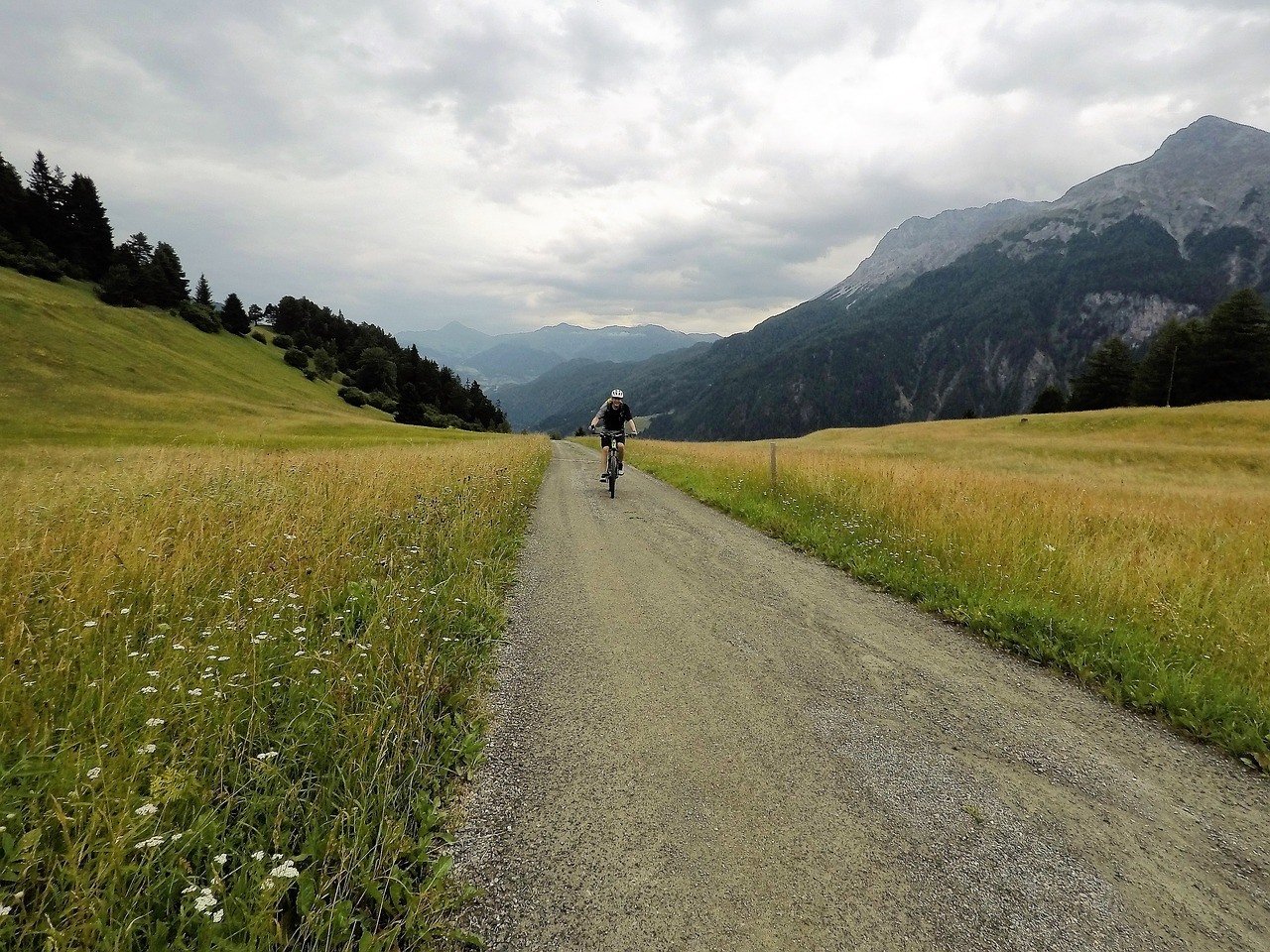
For the hundredth time, Switzerland is a really safe country! Thankfully, that goes for female travelers too. There’s basically nothing stopping any woman thinking of a solo trip to Switzerland. You’ll definitely be able to safely explore all the beautiful places Switzerland has to offer.
There are always going to be ways to maximize your safety and stay out of dangerous situations.
- Common sense is still the name of the game for solo female travelers in Switzerland. Anything that seems sketchy probably is, so remove yourself from any potentially dangerous situations and just trust your gut if something doesn’t feel right.
- With that in mind, don’t go walking around dark alleys and deserted parts of the city late at night. This is a good way to put yourself at risk. So don’t take unnecessary shortcuts, even if Google Maps is telling you to. Stick to well lit, busy streets.
- Book yourself into a well-reviewed hostel where you can meet other women and friendly travelers. And definitely make sure you read reviews because a place might be highly rated, but it might not be your scene.
- On a similar note, get involved in social events. Whether these are just cheese and wine nights at your hostel in Lucerne, a walking tour of Zurich, or a more comprehensive outdoorsy thing like hiking or skiing in Interlaken, doing this as a group will most likely be more fun than doing these things by yourself.
- You could also use Facebook groups and Twitter to find local women or other female travelers to hang out with on your trip. A good way to learn about the country, or get some tips on stuff to do in the local area.
- Catcalls and minor sexual harassment don’t happen a lot, but if they do, you should ignore it and move on. Getting into an argument can escalate the situation.
- If you feel overly bothered by somebody, tell somebody. Go into a shop, or ask a local for help.
- Let people know where you’re going. Whether this is your family and friends, or just your hotel staff, it pays to have somebody know where you are and what you’re up to.
- When you’re out at night, in a bar or club or whatever, don’t accept drinks from strangers. And when it comes to your own drink, keep your eye on it. Drink spiking does happen.
- As usual, women are more of a target for bag snatching. So if you are going out with a handbag, wear it across your body, not just dangling on your shoulder.
Making friends is also going to be a good idea. So book yourself into a social hostel, sign yourself up for a tour, and have a fun (and safe) time in Switzerland!
More on Safety in Switzerland
We’ve covered the main safety concerns already, but there are a few more things to know. Read on for more detailed information on how to have a safe trip to Switzerland.
Is Switzerland safe to travel for families?
Switzerland is safe to travel for families.
And not only that, it’s the perfect place to go with your family.
There are adventures to be had, great cities to explore and it boasts over 600 museums! That’s A LOT.
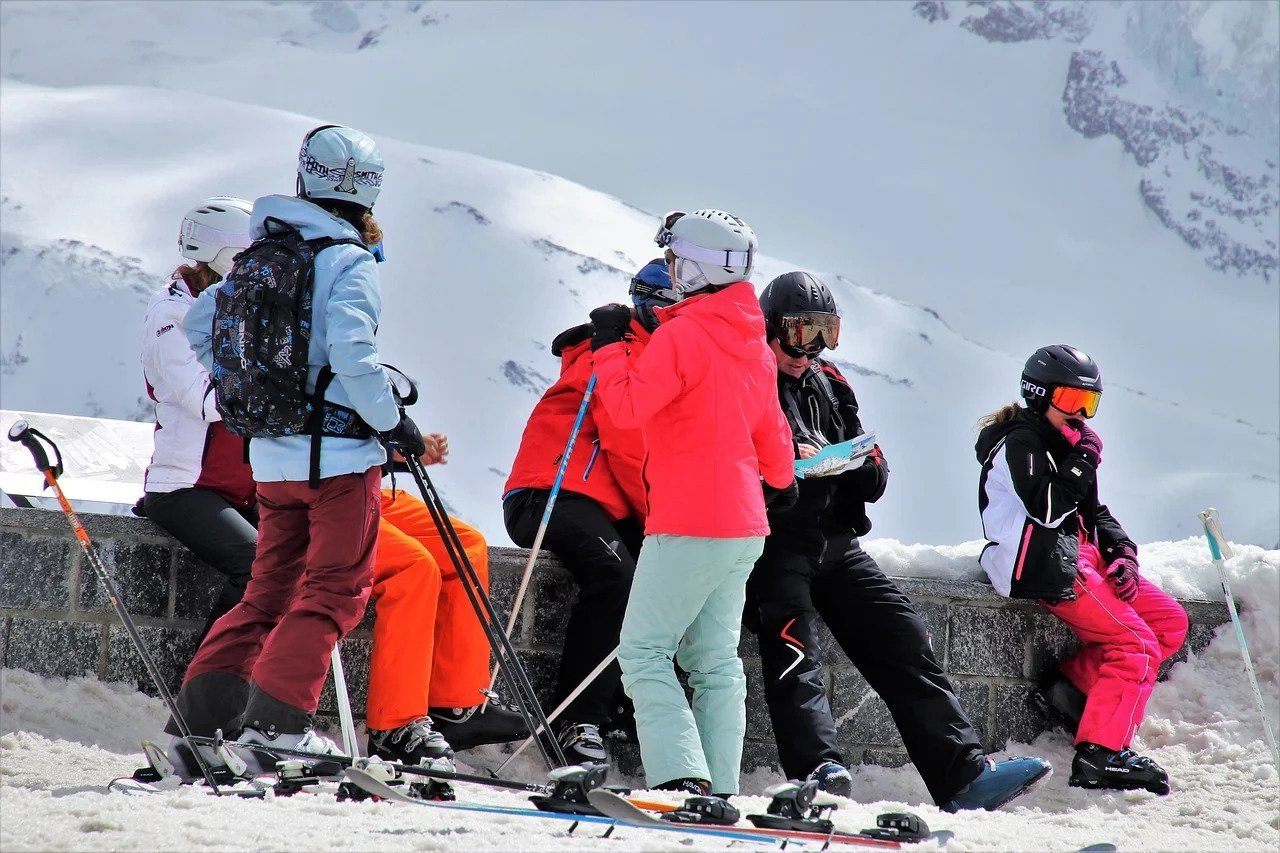
And kids are just about going to freak out at the Swiss Transport Museum in Lucerne – complete with spaceships and a planetarium that simulates space travel.
There’s also just the right amount of off-the-beaten-track travel to suit everyone.
In terms of accommodation, you’ll be able to choose from pretty much everything between high-end hotels and campsites. Most of the time these come with child-friendly facilities as well.
When it comes to train travel, children under 6 travel free and there are discounts for older children, too. That’s great because Swiss train journeys are unmissable.
Climate-wise, it’s not too hot, but you will have to keep your children covered up if you’re all planning on hitting the slopes.
You need to be aware that altitude affects children more acutely than adults. Some places you might want to visit are seriously high up.
But apart from that? Switzerland is safe for children. You’re going to have a great time!
Is it safe to drive in Switzerland?
Being a well developed European country, of course, it’s safe to drive in Switzerland.
And honestly, it offers up some of the most memorable driving experiences you can imagine. Winding around the mountains to see Swiss villages nestled in the mountains…
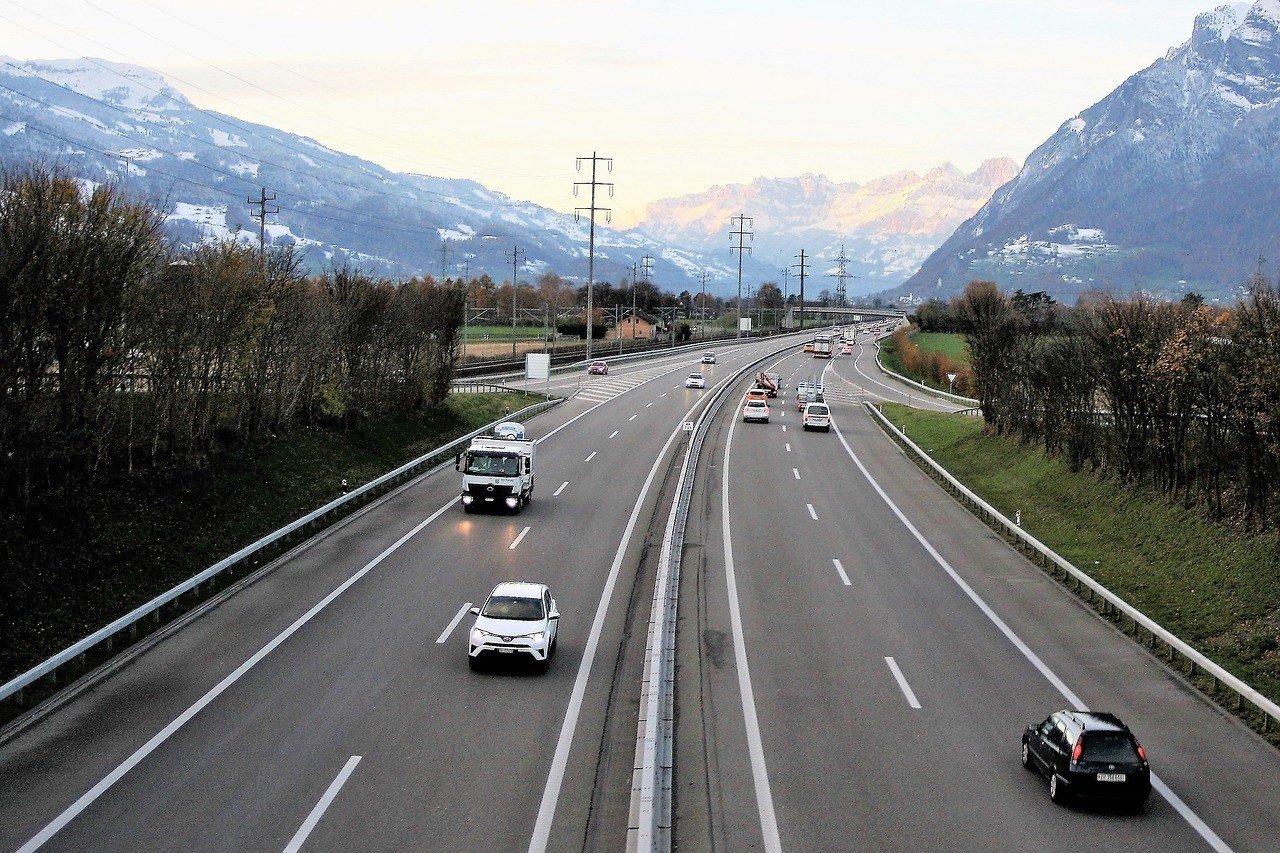
It’s next level picturesque.
In Switzerland’s cities, public transport is so good that it’s not really even worth driving. And parking can be a nightmare. And crazy expensive. Think up to 30 bucks for a couple of hours.
You can save yourself hassle (and money) by hopping on a train or a bus.
Elsewhere, if you fancy a road trip, you’re in luck. The roads are well maintained, well signposted, and beautiful. There are, however, some things you should take into consideration when driving in Switzerland.
Note from the Editor: Hey, it’s Art! I had the incredible experience of driving extensively in the French region of Switzerland. I strongly recommend driving Route de la Corniche, on Lake Geneva between Lausanne and Chexbres, and keep driving to have a lakeside picnic in the town of Vevey.
How to Drive in Switzerland
First and foremost, driving conditions depend on the weather. And Alpine weather can change pretty quickly. Sometimes you’ll have to use tunnels at the Great Saint Bernard, Saint Gotthard, and San Bernardino Passes due to heavy snow. Some other passes are only open in warmer months.
Many roads are super narrow with hairpin turns. We advise nervous drivers to avoid the mountains altogether. Sheer drops and virtually no space to let other cars pass mean you’ll have to be pretty good at keeping a cool head. Experience of this sort of driving helps.
When it comes to signs you should know about, here are two…
- a blue circle with a crisscrossed white tire means snow chains ARE A MUST.
- a blue square with a yellow bugle means postal buses have right of way. This also means paying attention to their three-tone horns – hence the bugle.
Basically, driving in alpine Switzerland can be a hair-raising experience. So this is something we’d only recommend for confident drivers. Mountain driving is not for the faint-hearted.
There are some other driving rules that you need to familiarize yourself with. This is crucial since traffic laws are strictly enforced, and the highway patrol uses trap cameras – unlike other countries, hidden-camera tickets aren’t an empty threat.
The mountains and the countryside alike are beautiful! You can even take your car on trains that pass through the mountains. How cool is that?!
Is Uber safe in Switzerland?
Uber is safe in Switzerland, no doubt about it.
All the usual benefits of Uber apply here: Knowing what your driver looks like, the car manufacturer, numberplate, tracking your journey, needing no language, paying in-app…
It’s used by locals to get home after a night out. Sounds familiar.
And it’s cheaper than taxis.
Are taxis safe in Switzerland?
Taxis in Switzerland are actually very good. They’re well regulated, easy to use, and the taxis in Switzerland are safe.
However, a lot of Swiss people don’t actually use taxis.
There are two reasons: 1) The public transport is AMAZING. 2) Taxis are EXPENSIVE.
First of all, you’ll have to pay a flat rate. This is normal in taxis. But this flat rate is so expensive that it makes getting a taxi anywhere in Switzerland totally not worth it if you’re only traveling a short distance.
You’ll have to pay for simple stuff like luggage and even a child seat.
The taxi drivers themselves are good though. They need to have a clean driving license for at least three years, and there are a LOAD of tests they have to pass in order to become qualified. They’ll have a photographic ID on display.
You can pick one up at train stations and airports. You can book a radio taxi. You can get them at taxi ranks, too – and you won’t even have to take the first taxi in line, which is convenient.
Taxis are safe in Switzerland – there’s not much nuance to that fact.
Is public transportation in Switzerland safe?
Yes. In cities like Zurich, there is a whole selection of public transport to use.
You can choose from bikes, buses, trams, and trains, all of which are often very reliable and safe.
In Neuchatel, Bern, Geneva, and Zurich as well as some other cities, you can rent a bike for free, which makes for a great way to explore the city. There’s nothing quite like pedalling around a new place.
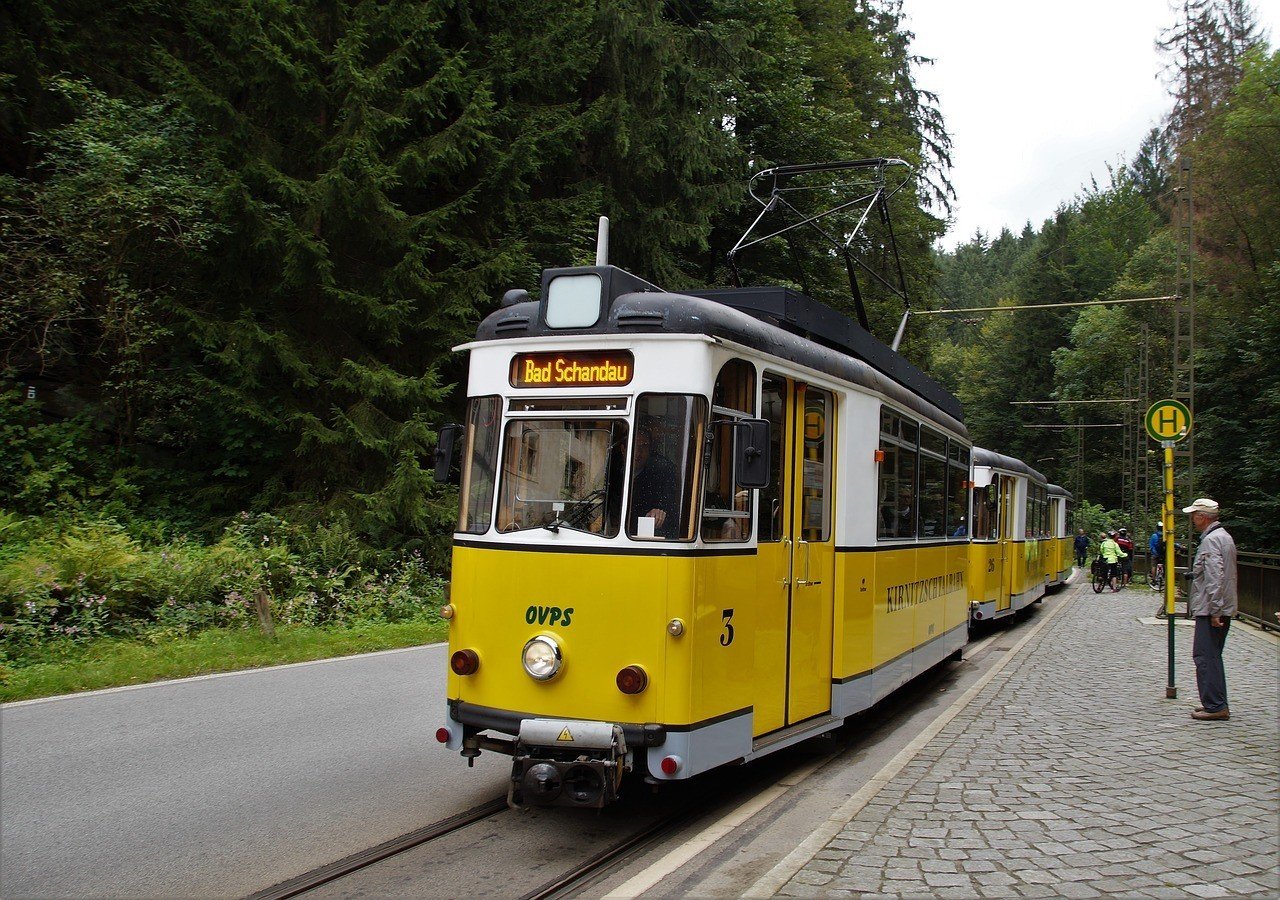
Buses, trains, trams, and metros in the cities can get busy during rush hours. Make sure at these times that you look after your belongings. It’s going to be in crowded places that pickpockets will operate. And take extra care in transport terminals.
When it comes to getting around long-distance, trains and buses have got you covered.
The state-run train network offers unbelievable scenic routes around the country. Some of them are pretty iconic for the views you can get from the train window.
These are also really safe, but you should probably book in advance for long journeys during tourist season. Seats can sell out pretty quickly.
Buses, consisting of the luminous yellow postal buses that we already mentioned, are a good option to get around Switzerland.
These follow the country’s old postal routes through the mountains and connect to small villages and other picturesque places.
You can purchase yourself a Swiss National Travel Pass, which is good for both train and bus travel.
When it comes to funiculars and cable cars, even if you’re afraid of heights, these are perfectly safe. Just make sure you don’t miss the last one coming down the mountain before dark!
In conclusion, public transportation in Switzerland is safe.
Is the food in Switzerland safe?
Thanks to its many borders, there’s a lot of stuff on offer in Switzerland. French, German and Italian cuisine are up for grabs here. There’s the German rosti (a big, fried potato pancake), suisse-romande (cheese fondue), raclette, as well as gnocchi and risotto.

The thing is with Switzerland… it’s not that the food is particularly expensive. It’s more the case that it’s just so expensive to eat out all the time. You might find yourself scrimping on a budget, and not eating healthily. So here are some tips to eat safely in Switzerland.
- Let’s put that expensiveness in context. Switzerland is home to the most expensive McDonald’s in the world. This won’t be a cheap eat in Switzerland, so avoid.
- We’d suggest you go for a family-run restaurant. This is almost always tasty, authentic, traditional and will more than likely be more welcoming than any other establishment.
- That said, make sure that the place you eat in looks clean. In tourist areas, the restaurants could well be tourist traps and not care about hygiene as much as a more ‘authentic’ restaurant.
- Eat at places that seem to be busy with locals. Or better yet, go online. Reading reviews – on Google, Tripadvisor, whatever – is definitely going to help you single out the good restaurants.
- If you’ve got a bit of a delicate stomach when it comes to rich, heavy foods like potatoes, cream, and cheese, then maybe go easy on it. There’s a huge load of all three of those things in almost all the restaurants in Switzerland.
- Last but not least: WASH YOUR HANDS. The hygiene, in general, may be pretty good in Switzerland, so don’t ruin that by making yourself the one who’ll give you a bad stomach.
- Traveling with an allergy? Research ahead of time how to explain your allergy. Keep in mind that store owners and restaurant staff might not know all the foods that contain allergens, so it’s helpful to know the names of some of these too. If you’re gluten-free, pick up a handy Gluten-Free Translation Card with descriptions of Celiac disease, cross-contamination risk, and local Swiss ingredients in German.
To be honest, the food standards are pretty high in Switzerland. They’ve got tough rules on food production and rules in place to make sure hygiene standards are met. The trouble you’re going to have is probably going to involve affording to eat.
Can you drink the water in Switzerland?
Hell yes. It’s literally mineral water! Especially in the mountains.
The fancy stuff you buy in expensive bottles back home? It comes from places like the Alps.
Take a refillable bottle and save money (and the planet) by filling up on their tasty water.
Ok, so, the lakeside cities use filtered lake water. But still, it’s safe to drink.
Nonetheless, filter, treat, or boil water any time you collect it from the wild. It’s impossible to predict when a water source is compromised, and the consequence is your health and spending the night on a hostel toilet rather than that bed you paid so much for!
We always bring along a filter bottle so we can have clean water no matter where we find ourselves.
Is Switzerland safe to live?
Like its water and transport, living in Switzerland is top quality.
Without a doubt, Switzerland is a safe country to live in. Crime is very low. And in most places, you’ll feel safe walking around – even in the middle of the night.
Couple that safety with some truly stunning natural scenery and you get an incredible place to live.
Even so, Switzerland does have some issues.
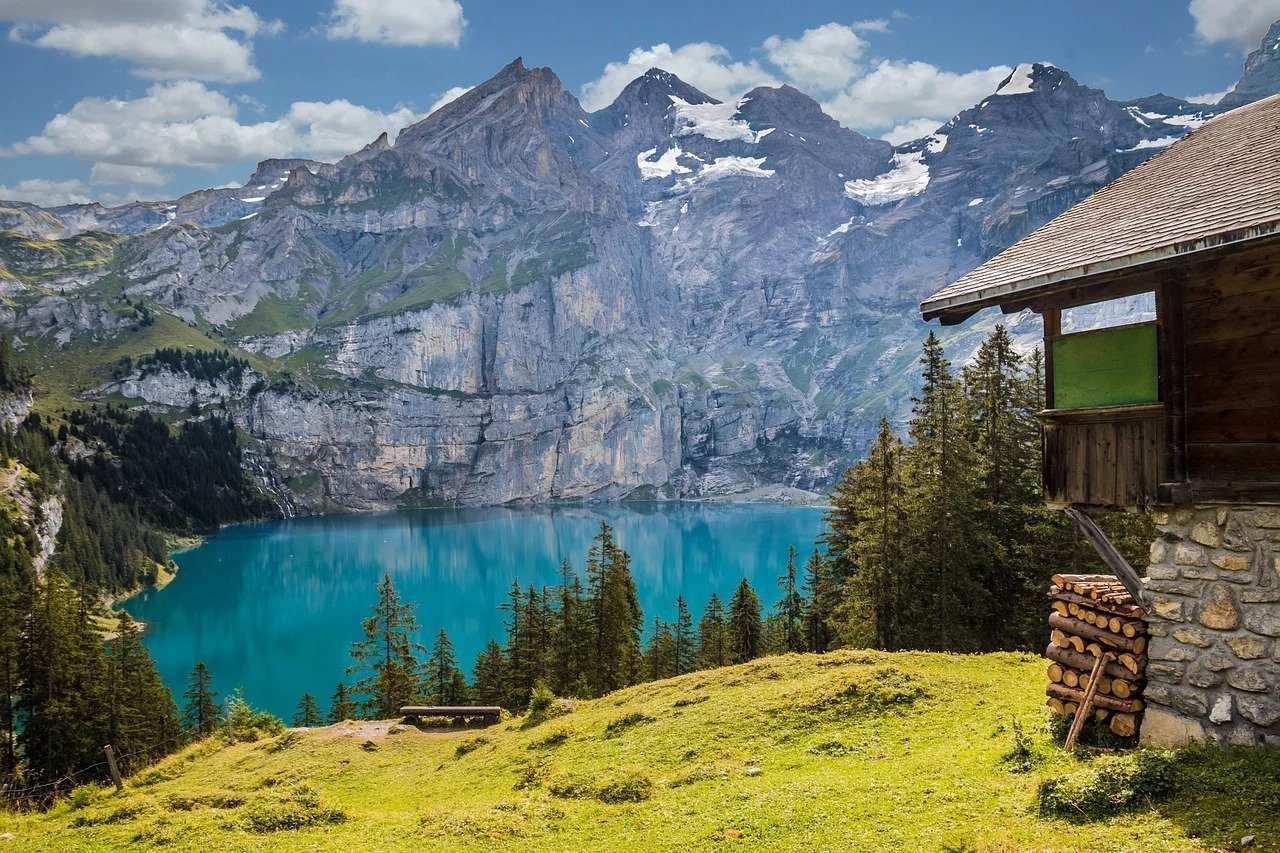
One of these is the weather. It gets cold and pretty rainy for a lot of the year. In the summer it can get really hot.
If you’re choosing to live in a village in the mountains (why wouldn’t you?), the weather can be super volatile and therefore dangerous.
Another issue with living in Switzerland is ALWAYS being seen as an auslander. That means ‘foreigner’. It can be very hard to integrate into Swiss society if you’re always going to be seen as a tourist instead of a resident.
It’s also a pretty conservative country. This makes it stable, of course, but it can be a little boring. Nightlife can be lackluster. So if you’re a social type who loves to go out, make friends and have fun, you might want to prepare yourself for a smaller dose of that.
There are also strange rules.
And as a general rule, nobody does their washing on a Sunday. No working outside – mowing the lawn, working on your car or bike. Forget it. All the things you might consider “Sunday things” are seen as “working noises” here, which are just not heard on Sundays.
Shops and other establishments are also closed on a Sunday.
Of course, if you want to live there and you have some money you want to save, it’s a very good place to live. Famously, the banks here have great rates and tax is really low, if that’s interesting for you.
Allin all, of course, Switzerland is safe to live in.

A new country, a new contract, a new piece of plastic – booooring. Instead, buy an eSIM!
Jetpac eSIMs work just like an app: you download it, pick your plan, and BOOM! You’re connected the minute you land. It’s that easy.
Read about how e-Sims work or click below to see one of the top eSIM providers on the market and ditch the plastic.
Grab an eSIM!Is it safe to rent an Airbnb in Switzerland?
Renting an Airbnb in Switzerland is a great idea. And it’s perfectly safe, as long as you read the reviews. Staying at an Airbnb during your trip will also open up new possibilities and options to experience the country. The local hosts are known to take great care of their guests and give the absolute best recommendations of what to do and what to see. Local knowledge always goes a long way, so be sure to reach out to your hosts if you’re unsure about how to fill up your Switzerland itinerary!
On top of that, you’ll stay safe with the reliable Airbnb booking system. Both hosts and guests can rate each other which creates a very respectful and trustworthy interaction.
Is Switzerland LGBTQ+ friendly?
Switzerland might have a very right-wing reputation, but the locals are generally very open-minded and welcoming towards visitors. That includes the LGBTQ+ community. There are plenty of gay bars and clubs in the major city.
Same-sex activities have been legal since 1942, and there has also been legal recognition of same-sex relationships since 2007. Switzerland might be a very religious country, but in that sense, they’re way ahead of other European countries. That’s why we think that LGBTQ+ travellers will be perfectly safe in Switzerland.
FAQ about Staying Safe in Switzerland
Here are some quick answers to common questions about safety in Switzerland.
Final thoughts on the safety of Switzerland
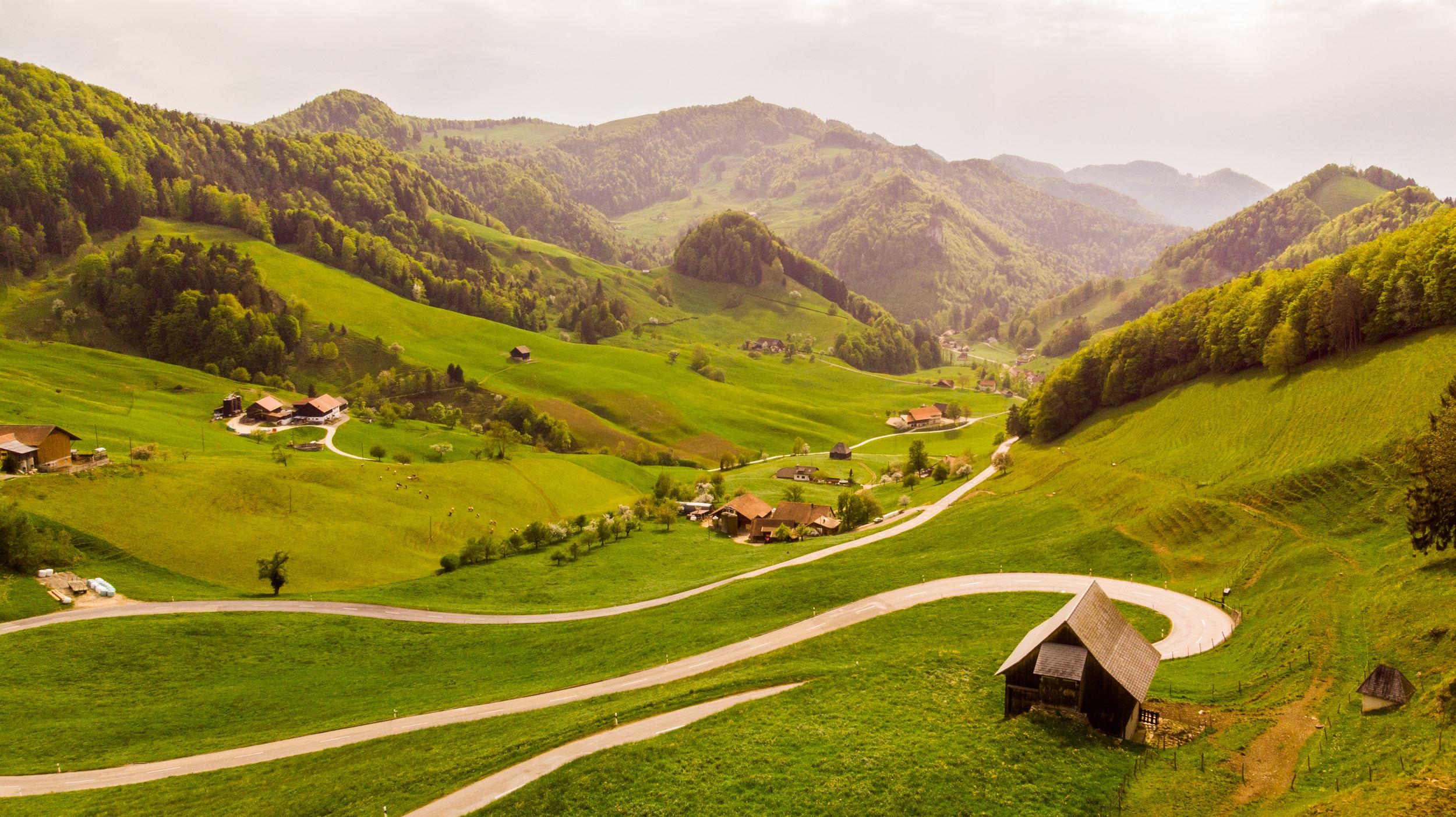
At the end of the day, Switzerland is a super safe country. Crime rates are low. Very, very low. You practically won’t have to worry about walking around at night. Even traveling here as a woman is going to be a whole lot LESS troublesome than traveling around in any one of Switzerland’s neighbors. But similar to Singapore: low crime doesn’t mean no crime.
What that means is that whilst Switzerland is safe, you can’t just wander around without a care in the world. Petty crime is on the rise (though its not yet common). By paying attention to your surroundings and not making yourself an obvious (or easy) target for would-be thieves, you’re going to be able to stay pretty safe.
That said, we can’t ignore Nature either. It all looks stunning, but actually getting out into the midst of the scenery itself – hiking, skiing, climbing, or whatever it is you choose to do – can be seriously dangerous. Knowing what you’re doing, being prepared, and having confidence (especially with driving!) is really going to help you stay safe.
Disclaimer: Safety conditions change all over the world on a daily basis. We do our best to advise but this info may already be out of date. Do your own research. Enjoy your travels!
Buy Us a Coffee!
A couple of you lovely readers suggested we set up a tip jar for direct support as an alternative to booking through our links. So we created one!
You can now buy The Broke Backpacker a coffee. If you like and use our content to plan your trips, it’s a much appreciated way to show appreciation 🙂


